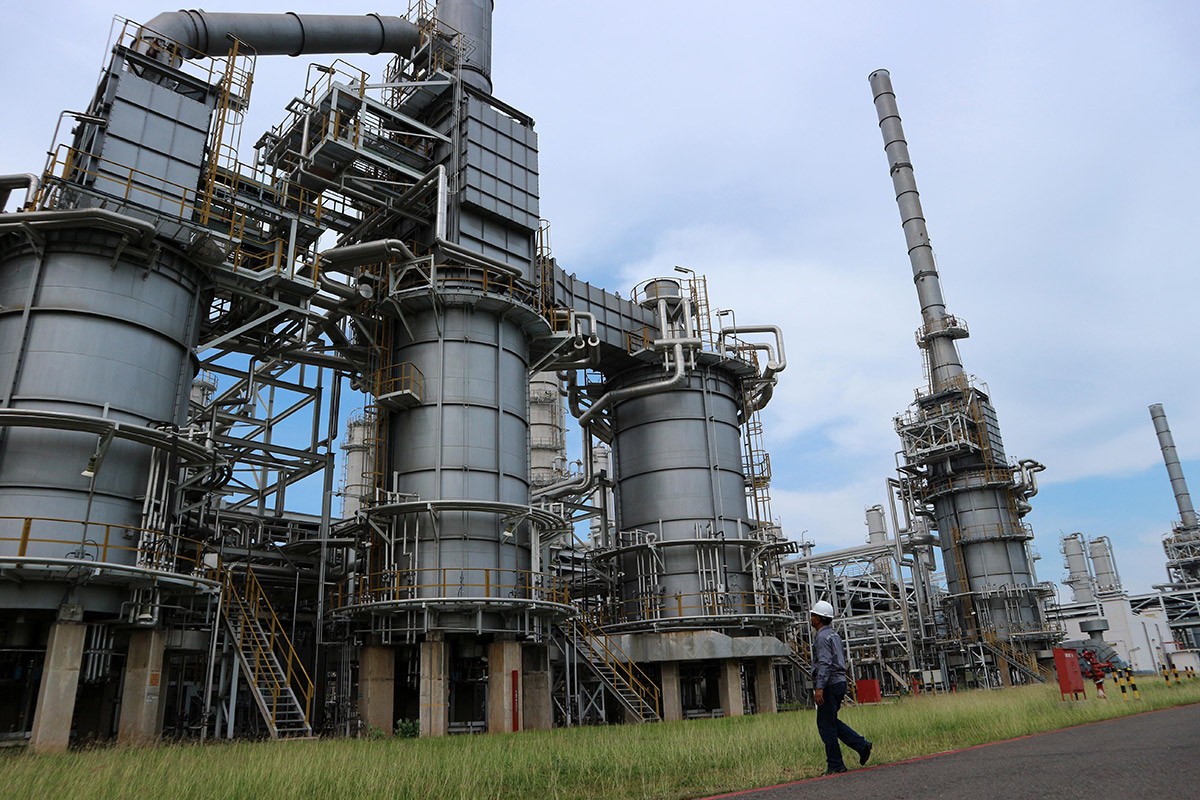Popular Reads
Top Results
Can't find what you're looking for?
View all search resultsPopular Reads
Top Results
Can't find what you're looking for?
View all search resultsPertamina's TPPI kicks off $180m petrochemical plant expansion
TPPI plans to raise its output capacity by 30 percent to 780,000 tons per year.
Change text size
Gift Premium Articles
to Anyone
P
etrochemical producer PT Trans-Pacific Petrochemical Indotama (TPPI) has begun work to expand its sole refinery in Tuban, East Java, in cutting Indonesia’s petrochemical imports.
TPPI, a subsidiary of state-owned oil and gas giant Pertamina, plans to raise its output capacity by 30 percent to 780,000 tons per year. The refinery can produce either gasoline or paraxylene, a key ingredient in making polyester textiles.
The producer expects to finish designing the facility by September 2020 and finish building five storage tanks, which are key infrastructure, by December 2021. The expansion project will cost US$180 million.
“By the first quarter of 2022, we expect the refinery to be fully operational,” said TPPI president director Yulian Dekri in a statement on Thursday, Sept. 24.
Slashing petrochemical imports is one of the government’s many strategies to turn around Indonesia’s gaping trade deficit which, despite having improved during the health crisis, remains a long-term vulnerability for Southeast Asia’s largest economy.
Indonesia imports roughly 1 million tons of paraxylene each year, according to TPPI.
The country’s only other paraxylene-capable refinery is Pertamina’s Cilacap refinery in Central Java. This refinery has a smaller capacity of 200,000 tons per year.
Pertamina, which acquired TPPI last year, had ordered the refiner to only produce gasoline in fueling Indonesia’s constantly growing fleet of personal vehicles.
When COVID-19 struck Indonesia, causing domestic fuel demand to plunge, Pertamina ordered TPPI to halve its gasoline production while keeping the remaining capacity idle in cutting operational costs.
“In August, we resumed production of paraxylene as paraxylene prices had slightly risen and domestic demand was still strong,” TPPI corporate secretary Ahmad Fanny told The Jakarta Post on Friday, Sept. 25.
The company plans to produce 280,000 tons of paraxylene next year.
Globally, annual paraxylene production capacity is expected to grow 12.4 million tons between 2020 and 2030 (mostly from China), which will further strain an already existing global overcapacity, wrote energy consultancy Wood Mackenzie in a statement in June.
Wood Mackenzie principal analyst Joyce Grigorey said petrochemical plants already under construction would likely be built but would not necessarily run at full capacity.
“Those projects that are still in the early stages of development and have not started construction will likely be delayed,” said Grigorey.
Industry Minister Agus Gumiwang Kartasasmita encouraged Pertamina to allow TPPI to produce more paraxylene in curbing petrochemical imports, a result that is “very good for improving Indonesia’s economy.”










